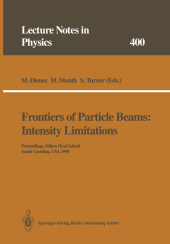 Neuerscheinungen 2014Stand: 2020-02-01 |
Schnellsuche
ISBN/Stichwort/Autor
|
Herderstraße 10
10625 Berlin
Tel.: 030 315 714 16
Fax 030 315 714 14
info@buchspektrum.de |

Jürgen Ehlers, Helmut Friedrich
(Beteiligte)
Canonical Gravity: From Classical to Quantum
Proceedings of the 117th WE Heraeus Seminar Held at Bad Honnef, Germany, 13-17 September 1993
Herausgegeben von Ehlers, Jürgen; Friedrich, Helmut
Softcover reprint of the original 1st ed. 1994. 2014. x, 372 S. 235 mm
Verlag/Jahr: SPRINGER, BERLIN; SPRINGER 2014
ISBN: 3-662-13954-5 (3662139545)
Neue ISBN: 978-3-662-13954-7 (9783662139547)
Preis und Lieferzeit: Bitte klicken
The search for a quantum gravity theory, a theory expected to combine the principles of general relativity and quantum theory, has led to some of the most deepest and most difficult conceptual and mathematical questions of modern physics. The present book, addressing these issues in the framework of recent versions of canonical quantization, is the first to present coherently the background for their understanding. Starting with an analysis of the structure of constrained systems and the problems of their quantization, it discusses the canonical formulation of classical relativity from different perspectives and leads to recent applications of canonical methods to create a quantum theory of gravity. The book aims to make accessible the most fundamental problems and to stimulate work in this field.
Prima facie questions in quantum gravity.- Hamilton´s formalism for systems with constraints.- The classical theory of canonical general relativity.- Ashtekar variables in classical general relativity.- Quantization of systems with constraints.- Canonical quantum gravity and the question of time.- The semiclassical approximation to quantum gravity.- Loop representations.- Gauge theory and gravity in the loop formulation.- Reduced models for quantum gravity.- Adjointness relations as a criterion for choosing an inner product.- Overview and outlook.
These lectures are meant as an introduction to an area of quantum gravity which is still close to the original ideas of classical relativity and which has seen significant progress recently. It is also a thorough introduction to the canonical formalism which will make the subject accessible also to non-specialists and especially to graduate students.


